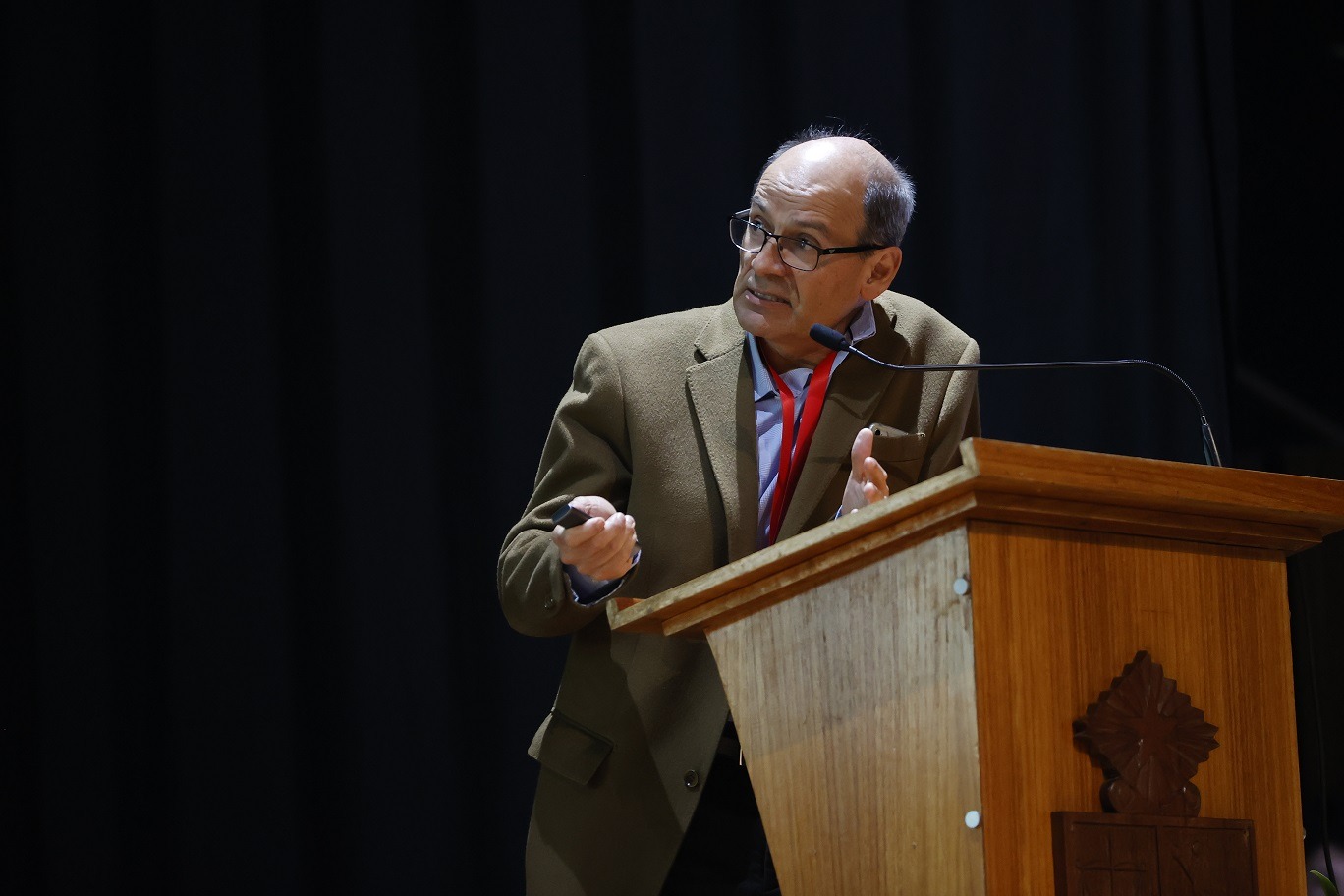Actualidad
VIII Annual Postharvest Conference Highlights the Importance of Collaboration Between Academia and Industry
With the participation of nearly 300 attendees and the presentation of 54 research papers, the event underscored the crucial role of postharvest technologies in ensuring the global supply of fruit and strengthening Chile’s fruit industry

Nearly 300 attendees, the presentation of 54 research papers, and 16 sponsors from companies with national and international presence were part of the summary provided by the organizers of the VIII Annual Postharvest Conference. The two-day event took place at the Magna Hall of the Faculty of Agricultural Sciences at the University of Chile, where postharvest technologies were highlighted as key tools for securing global fruit supply.
Dr. Bruno Defilippi, Dr. Víctor Hugo Escalona, and Francisco Herrera organized the event, held on August 21 and 22, bringing together experts, academics, students, and professionals connected to the sector.
The conference was inaugurated by Dr. Christian Alfaro, Deputy Director of R&D at INIA Chile, who emphasized Chile’s international prestige in the fruit sector, thanks to the ongoing efforts of the industry and the contributions of experts from various educational and research institutions. INIA Chile and the Faculty of Agricultural Sciences at the University of Chile are examples of this through their Regional Centers and Experimental Stations throughout the country, which are dedicated to improving production and export processes, contributing to both national and international agri-food development.
Similarly, Verónica Díaz, Director of Outreach at the Faculty of Agricultural Sciences, praised the professional training and the community contributions.
Meanwhile, Juan Pablo Zoffoli, Professor of Postharvest Physiology and Technology at the Pontifical Catholic University of Chile, opened the conference with a keynote lecture. He emphasized that this annual event brings academia together, showcasing the latest advances from research groups. For this year, the inclusion of industry was a significant achievement, as it brings relevance to research that communicates its findings.

National Perspective
In general, speakers highlighted the high level of postharvest expertise in Chile, primarily driven by the need to export to distant markets worldwide.
"It’s an area that, if we don’t develop, who will?" asked Dr. Zoffoli, noting that in the Southern Hemisphere, the other major player in export-focused research is New Zealand, which is focused on kiwis, apples, and some blueberries. Therefore, development must start from research. "It’s difficult to project new technologies without a foundation of applied research," he said.
Regarding the current situation, Zoffoli explained that Chile operates in a very specific and strategic area, especially with regard to stone fruits (peaches, nectarines, and plums), where Chile is the only exporter, with no competitors in the off-season. The outcomes depend on their efforts to control the market.
Another example, he added, is table grapes:
"We’ve been leaders, and today we share that leadership with Peru. The research being conducted by these two countries is highly relevant for addressing the challenges we face during transportation to markets."
Attendees' Opinions
Julia Pinto, an agronomist and technical manager of the Chilean Blueberry Committee, said:
"These types of conferences are fundamental for bringing together academia and research centers from various parts of Chile and abroad. This way, we can join forces on a common research line, knowing what others are working on. It’s an opportunity to stay updated on postharvest technology, innovation, research, and business."
She also emphasized the importance of concrete data that comes from research during such events:
"There is solid data with a methodology, and that’s crucial for the industry to make decisions based on concrete information. Also, the partnership we have with various research centers, especially the University of Chile and INIA, with whom we have worked closely to align our efforts."
"Often, businesses need quick answers, so it’s sometimes hard for them to understand that we must support primary research to take the next step. We must first understand a process before applying the research to something practical or a product."
Roberto Jara Maureira, an agronomist and MSc Lab Manager at AgroFresh, added:
"We’re connecting academia with the industry. Much of what we do originates in academia, so this event gives us the opportunity to connect and generate important technological developments for the sector we represent. These events allow us, as a company, to connect with different stakeholders. Here, we have the chance to see the research being done in academia and later develop it into a commercial product. Additionally, as a company, this event provides a means to connect with new clients and share what we’re doing in research and technological development."
Finally, Danilo Arellano González, an alumnus of the Faculty of Agricultural Sciences at the University of Chile and head of the technical department at Liventus, a company specializing in controlled atmospheres and one of the event’s speakers, said:
"This event is vital because I feel there has been a lack of synchronization between the industry and academia; they speak different languages. So, I think these events serve to align and integrate these two fundamental pillars for the development of postharvest in Chile."












